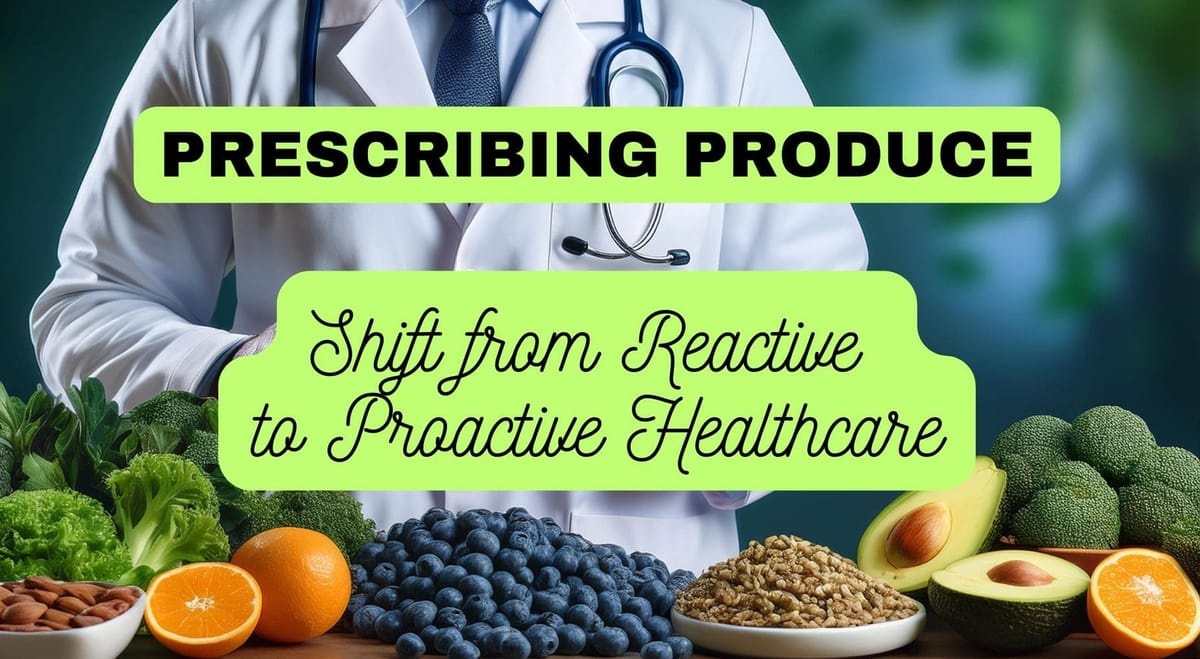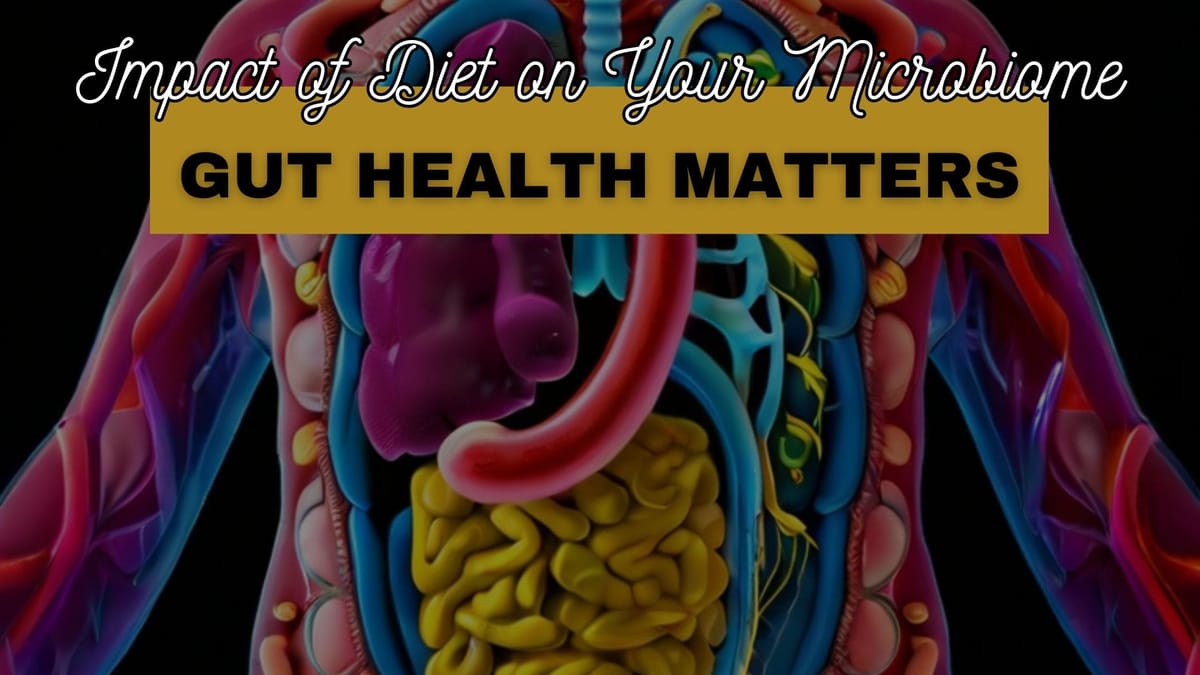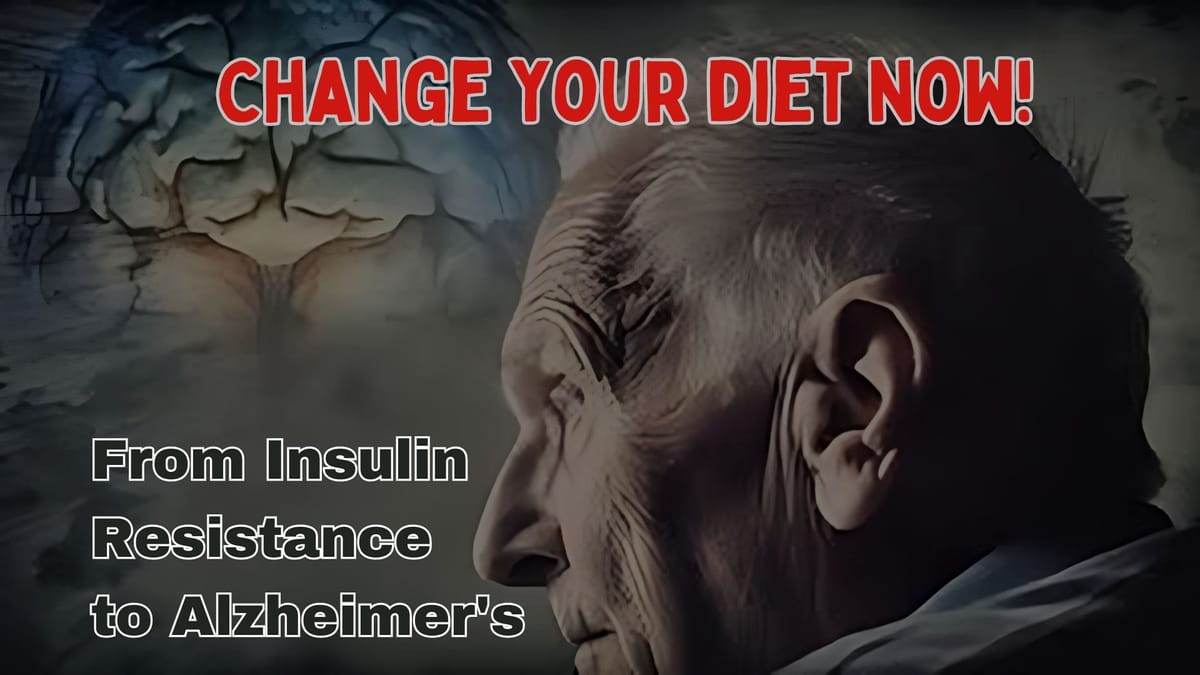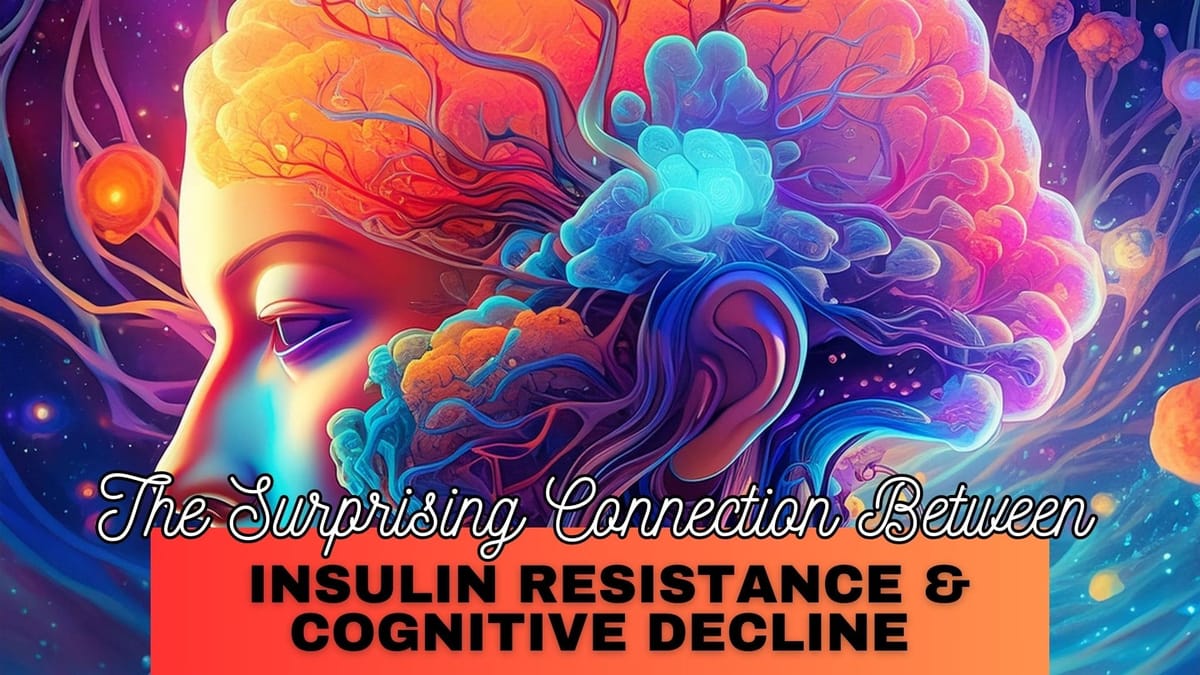Prescribing Produce: The Shift from Reactive to Proactive Healthcare
In an era where chronic diseases are on the rise and healthcare costs are skyrocketing, the importance of preventative healthcare cannot be overstated. At the heart of this proactive approach to health lies a fundamental yet often overlooked factor: nutrition.

In an era where chronic diseases are on the rise and healthcare costs are skyrocketing, the importance of preventative healthcare cannot be overstated. At the heart of this proactive approach to health lies a fundamental yet often overlooked factor: nutrition. This article delves into the crucial role of diet in maintaining health and preventing disease, exploring why it's time for a paradigm shift in how we approach healthcare.
If you'd prefer to listen to the podcast:
Understanding Preventative Health Care
Preventative health care encompasses preventing diseases or injuries rather than curing them or treating their symptoms. It includes a range of actions, from regular health screenings and vaccinations to lifestyle choices that promote overall well-being. Nutrition stands out as a cornerstone of preventative health, offering a powerful tool for individuals to take control of their health destiny.
The Current State of Medical Practice
Why General Practitioners Often Prescribe Medication Over Dietary Advice
Despite the growing body of evidence supporting the role of nutrition in health, many healthcare providers still lean heavily towards medication as a first-line treatment. Several factors contribute to this trend:
- Traditional Medical Training: Medical schools have historically focused more on pharmacology and disease management than nutrition. As a result, many doctors feel more comfortable prescribing medications than offering detailed dietary advice.
- Time Constraints: In today's fast-paced healthcare environment, doctors often have limited time with each patient. Prescribing medication can be quicker than providing comprehensive nutritional counselling.
- Influence of Pharmaceutical Companies: The pharmaceutical industry's marketing efforts and research funding can influence prescribing habits, sometimes overshadowing non-pharmacological interventions like dietary changes.
- Patient Expectations: Many patients expect a quick fix in the form of a pill, rather than committing to long-term lifestyle changes.
This medication-first approach, while sometimes necessary, often overlooks the potential of nutrition as a powerful preventative and therapeutic tool.
The Dark Side of Prescription Medications
Overview of Common Side Effects
While prescription medications play a crucial role in managing many health conditions, they often come with a host of side effects that can range from mildly uncomfortable to severely debilitating. Common side effects include:
- Gastrointestinal issues (nausea, diarrhoea, constipation)
- Vitamin deficiencies
- Drowsiness. dizziness and headache
- Mood changes
- Skin reactions
- Dependency and withdrawal symptoms
Long-term Health Risks
Prolonged use of certain medications can lead to more serious health issues:
- Liver or kidney damage
- Increased risk of heart problems
- Hormonal imbalances
- Weakened immune system
- Cognitive impairment
US Statistics on Medication Use and Adverse Effects
The prevalence of prescription medication use is staggering:
- According to the Centers for Disease Control and Prevention (CDC), 48.6% of Americans used at least one prescription drug in the past 30 days.
- 24% used three or more prescription drugs.
- Adverse drug events cause over 1 million emergency department visits each year in the United States.
These statistics highlight the urgent need for alternative approaches to health management, with nutrition playing a central role.

The Impact of Nutrition on Health
How Nutrition Affects Physical Health
The food we eat provides the building blocks for every cell in our body. A balanced, nutrient-rich diet can:
- Strengthen the immune system
- Improve cardiovascular health
- Enhance digestive function
- Support healthy weight management
- Promote better sleep
Research has consistently shown that a diet rich in fruits, vegetables, whole grains, and lean proteins can significantly reduce the risk of chronic diseases such as heart disease, type 2 diabetes, and certain cancers.


Nutrition's Role in Mental Health
The connection between diet and mental health is an exciting emerging research area. Studies have found that:
- A Mediterranean-style diet high in fruits, vegetables, whole grains, and healthy fats is associated with a lower risk of depression.
- Omega-3 fatty acids, found in fish and flaxseeds, may help alleviate symptoms of depression and anxiety.
- The gut-brain axis, influenced heavily by diet, plays a crucial role in mood regulation and cognitive function.
These findings suggest that nutrition should be a key consideration in both the prevention and treatment of mental health disorders.


Chronic Disease Prevention Through Nutrition
Dietary Patterns and Chronic Disease Risk
Numerous studies have demonstrated the power of diet in preventing chronic diseases:
- The DASH (Dietary Approaches to Stop Hypertension) diet has been shown to lower blood pressure as effectively as some medications.
- Plant-based diets are associated with a lower risk of heart disease, type 2 diabetes, and certain cancers.
- The Mediterranean diet is linked to reduced risk of heart disease, stroke, and cognitive decline.
Specific Nutrients and Their Benefits
While overall dietary patterns are crucial, certain nutrients play critical roles in disease prevention:
- Omega-3 fatty acids: Reduce inflammation and support heart and brain health.
- Fibre: Aids in digestion, helps control blood sugar, and may reduce the risk of colon cancer.
- Antioxidants (vitamins C, E, and beta-carotene): Protect cells from damage and may reduce cancer risk.
- Vitamin D: Supports bone health and may play a role in immune function and cancer prevention.
- Probiotics: Support gut health, which is increasingly linked to overall physical and mental well-being.
Practical Tips for Integrating Nutrition into Preventative Health Care
Healthy Eating Strategies
- Embrace whole foods: Focus on fruits, vegetables, whole grains, lean proteins, and healthy fats.
- Practice portion control: Use smaller plates and be mindful of serving sizes.
- Cook at home: This gives you control over ingredients and preparation methods.
- Stay hydrated: Drink water instead of sugary beverages.
- Plan meals: Prepare healthy meals in advance to avoid unhealthy convenience and ultra-processed foods.
- Read labels: Be aware of added sugars, unhealthy fats, and artificial additives in packaged foods.
Resources for Further Education
- Books: "How Not to Die" by Michael Greger, MD; "Eat to Beat Disease" by William Li, MD
- Websites: NutritionFacts.org, Harvard T.H. Chan School of Public Health Nutrition Source
The Future of Preventative Health Care
As we face a global epidemic of chronic diseases, it's clear that our approach to health care needs to evolve. Nutrition, long overlooked in favour of pharmaceutical interventions, must take centre stage in preventative health strategies. By embracing the power of food as medicine, we can not only prevent disease but also promote optimal health and well-being.
The shift towards nutrition-focused preventative care will require changes at multiple levels:
- Medical education must place greater emphasis on nutrition science.
- Healthcare systems need to incentivize preventative care and lifestyle interventions.
- Individuals must take more responsibility for their and their family's health by making informed dietary choices and stopping ultra-processed foods.
By recognizing the fundamental role of nutrition in health, we can pave the way for a healthier, more vibrant future – where food is our first line of defence against disease, and where the power to prevent illness lies not just in a pill, but on our plates.






